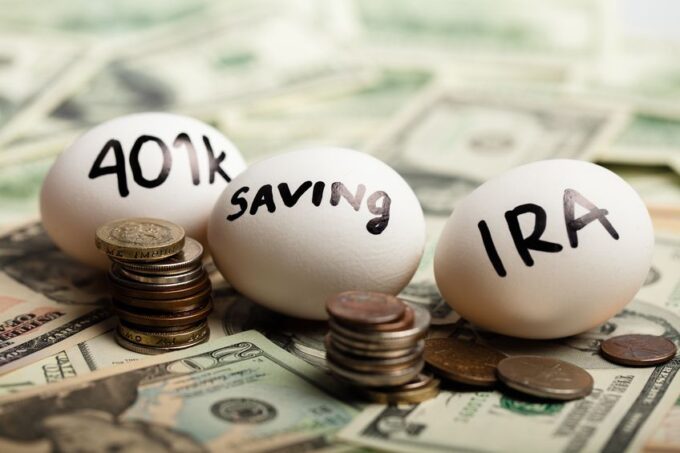Is it ever too early to plan and save for retirement? Absolutely not! Let’s face it, the earlier you start, the better off you’ll be when the time comes.
In this blog, we’ll be discussing how to get a head start on your retirement planning in 2025. We’ll cover everything from setting a retirement savings goal to investing your money in the right places. So if you’re ready to take control of your future and secure yourself a comfortable retirement, let’s get started!
Why Is It Important to Start Planning and Saving for Retirement Early?
Retire plan is one of the most important milestones in life and should be taken seriously. There are numerous benefits when it comes to starting early, as many of the assumed costs or goals that you may have for your retirement can be met.
Time can help you better manage and allocate investments to costs that are associated with it, such as healthcare expenses, travel, long-term care, and estate planning. Starting early allows you to develop a budget that is mindful of these expenses and allows you more time to reach your desired retirement goals. Furthermore, having more time usually increases the likelihood of being able to meet those goals as opposed to leaving it all too late.
For example, a retirement plan on the French Riviera is a popular option for many, as it offers the opportunity to enjoy a high-quality lifestyle in a beautiful setting. The French Riviera, or Côte d’Azur, is known for its Mediterranean climate, picturesque towns and villages, and world-class amenities.
This may include purchasing a property in a desirable location, such as Nice or Cannes, and renting it out as a holiday home during the tourist season. This can provide a steady income stream and help to offset the costs of living on the Riviera.

Additionally, retirees on the French Riviera can enjoy a wide range of activities and amenities, including beaches, boating, hiking, and cultural events. Many towns on the Riviera also have good public transportation, health care, and other services that are important for retirees.
By preparing early on, you can enjoy less stress and fortunately more options; holding yourself until later years when inflation has impacted greatly on retirees’ purchasing power is a decided disadvantage.
- A wise use of long-term investments would include diversifying incomes so that all monies are not fully dependent on just one source, such as Social Security benefits or pension plans.
- By allowing your money sufficient time to compound over several years (20 years versus 10 years), any available income taxes could be delayed into retirement when your tax rate could be lower – creating a sizable difference in potential returns come the day of retirement.
- Moreover, if there are sizable 401(k) matches available from an employer; taking advantage while participating in those earliest years could yield considerable returns by enveloping either free money offered through matching funds or added benefits due to retiring decisions made early in life-saving plans.
How Early Should You Start Planning and Saving for Retirement?
For example, if you are 21 when you start saving for retirement, plan to save up to 42%. If you wait until age 30 to begin investing in your future, then plan to save up to 60%. And if you begin at 40 years old or later, consider setting aside a larger portion of each paycheck with the percentage growing significantly in late years.

Time is money when it comes to retirement savings and investments. Compound interest (where the money earns interest on both contributions and previously earned interest) works best with time on your side; allowing more time can exponentially increase results over the life of an investment account such as an Individual Retirement Arrangements (IRA) or 401(k).
Regardless of your current location on the timeline for beginning to plan and save for your own golden years, assessing risk tolerance early will provide valuable insight into how much Plan B (emergency resources) should be available during any shockable event. It’s never too soon (or too late) to begin planning for financial security in retirement. Start now with knowledge about what needs consolidation or review – alluding to a great sense of relief once goals have been achieved within an allotted period.
Tax Benefits of Retirement Planning and Saving
Building a nest egg for your pension is a crucial part of long-term financial security. One benefit of starting the planning and saving process early is that you can take advantage of certain tax benefits that may be available. Let’s look at some of the taxation strategies you could use to optimize your retirement savings plan.
Tax-Deferred Contributions: Contributing to certain types of these accounts allows you to defer taxes until you withdraw funds as income during retirement. Generally, this means putting off paying taxes on those contributions until later in life when your taxes may be lower due to reduced income levels. Some excellent vehicles for tax-deferred savings include:

- Traditional IRAs: Each year, individuals can contribute up to the annual IRA contribution limit (currently $6,000) with pre-tax dollars and defer taxes on these contributions until they make withdrawals from their IRAs in retirement.
- 401(k)s or 403(b)s: Many employers provide 401(k) plans or 403(b)s for their employees. Generally, participants will receive a matching contribution from their employers and are allowed to save up to the annual limit each year ($19,500 in 2021). If a 401(k) is offered through an employer, any funds contributed are excluded from current year gross income for tax purposes but all regular contributions, employer matching contributions, and earnings are taxed when withdrawn in retirement.
Depending on individual financial situations, taking advantage of these opportunities may lower your taxable income while boosting your retirement savings account totals at the same time!
Retirement Planning: The Key to a Comfortable Future
Retirement planning is an essential process that requires foresight and discipline, to ensure that individuals have sufficient funds to maintain their desired standard of living after their working years have concluded. At its core, this planning entails setting aside a portion of one’s current income for future use. The earlier one starts, the more one can leverage the power of compound interest, turning small savings into substantial future sums. Various tools, such as 401(k)s, IRAs, and pension plans, are available to aid in this journey.
Additionally, it’s not just about the financial aspect; retirement planning also involves thinking about how you want to spend your retirement – whether it’s travelling, picking up new hobbies, or relocating to a quieter location. Preparing for healthcare expenses, understanding Social Security benefits, and possibly even estate planning are integral components. In an ever-changing economic landscape, having a strategic retirement plan can be the difference between a golden age filled with relaxation and opportunities and one clouded by financial stress and limitations. Proper planning ensures not just comfort, but also the freedom to enjoy one’s later years to the fullest.
Conclusion
No matter if you’re just starting out or want to create a new plan as retirement approaches, starting now is always the best decision.
There are many resources available including personal finance advisors or government resources such as Social Security Administration or local area financial counselors that you can use for getting informed about the best steps to take for your current financial stage. Everyone’s situation is different so make sure you do what’s best for YOU!










